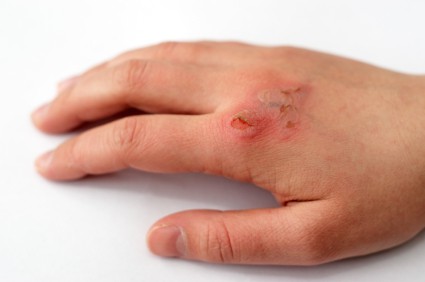Put simply, the presence of elevated liver enzymes is an indicator that the liver cells or tissues are damaged or inflamed. Such can be blamed on many different things, and the most common of the bunch can be found below.
Liver cells or tissues that are damaged or inflamed tend to give off chemicals such as liver enzymes, and their presence in the bloodstream can be detected via a routine blood test. If the blood test report reveals that the levels of liver enzymes are elevated, a doctor may recommend other tests and procedures in order to identify the root cause.
Generally speaking, elevated liver enzymes do not cause signs and symptoms. However, a doctor may check someone’s levels of liver enzymes if he or she is exhibiting signs and symptoms of common liver problems such as hepatitis.
In a lot of instances, according to health authorities, having elevated liver enzymes is mild and temporary only, which means that it does not indicate a serious long-term problem concerning the liver. The same, however, cannot be said for certain cases which require treatment and also some lifestyle and dietary changes in order to put the issue under control effectively as well as keep at bay complications.
Let’s now take a look at some of the common causes of elevated liver enzymes:
Administration of Medications
Everyone knows that one of the main tasks of the liver is to metabolize drugs. That is why something as simple as taking some medications can cause one’s liver enzymes to become elevated.
The intake of over-the-counter or OTC medications for pain, including most especially acetaminophen, is notorious for causing elevated liver enzymes. There are various prescription medications that can also be blamed for the presence of elevated liver enzymes, such as statins or drugs that are used to put under control high cholesterol levels.
Consumption of a Lot of Alcohol
Other than drugs, alcohol is also metabolized by the liver. It’s for this reason exactly why the intake of excessive amounts of alcoholic beverages can wreak havoc on the said organ.
It’s not unlikely for individuals who are consuming lots of alcohol to wind up having increased liver enzymes in the bloodstream. According to health authorities, those who are chronic alcohol abusers have elevated risk of winding up with fatty liver disease, cirrhosis (scarring of the liver tissue), alcoholic hepatitis and even liver cancer.
Hepatitis A, B and C
Speaking of hepatitis, having hepatitis A, B or C can cause elevated liver enzymes. There are many types of hepatitis, but hepatitis A, B and C are all caused by different types of viruses.
The trouble with hepatitis A, B and C is that they are known to cause some very serious complications if they’re not put under control promptly and effectively. Fibrosis, cirrhosis, liver failure and liver cancer are just some of the most terrifying problems that may come into being if hepatitis A, B and C progress uncontrollably.
Autoimmune Hepatitis
In some cases, having elevated liver enzymes cannot be blamed on medications, alcohol and viruses. Sometimes it is caused by the body itself, in particular the immune system.
This is basically the reason behind autoimmune hepatitis. Such medical condition is characterized by inflammation of the liver because its cells are being attacked by the immune cells. Instead of just getting rid of disease- or infection-causing microbes, the immune system also tries to deal with perfectly harmless liver cells.
Being Obese or Overweight
It’s common knowledge that the heart and the rest of the cardiovascular system are placed in danger if a person is obese or overweight. Not a lot of people are aware of the fact that the liver is in peril, too.
Health authorities confirm that being obese or overweight can increase a person’s chance of winding up with a serious problem regarding the liver, and its presence registers in the form of elevated liver enzymes during a routine blood test. It goes without saying that maintaining an ideal weight is good for the liver.








